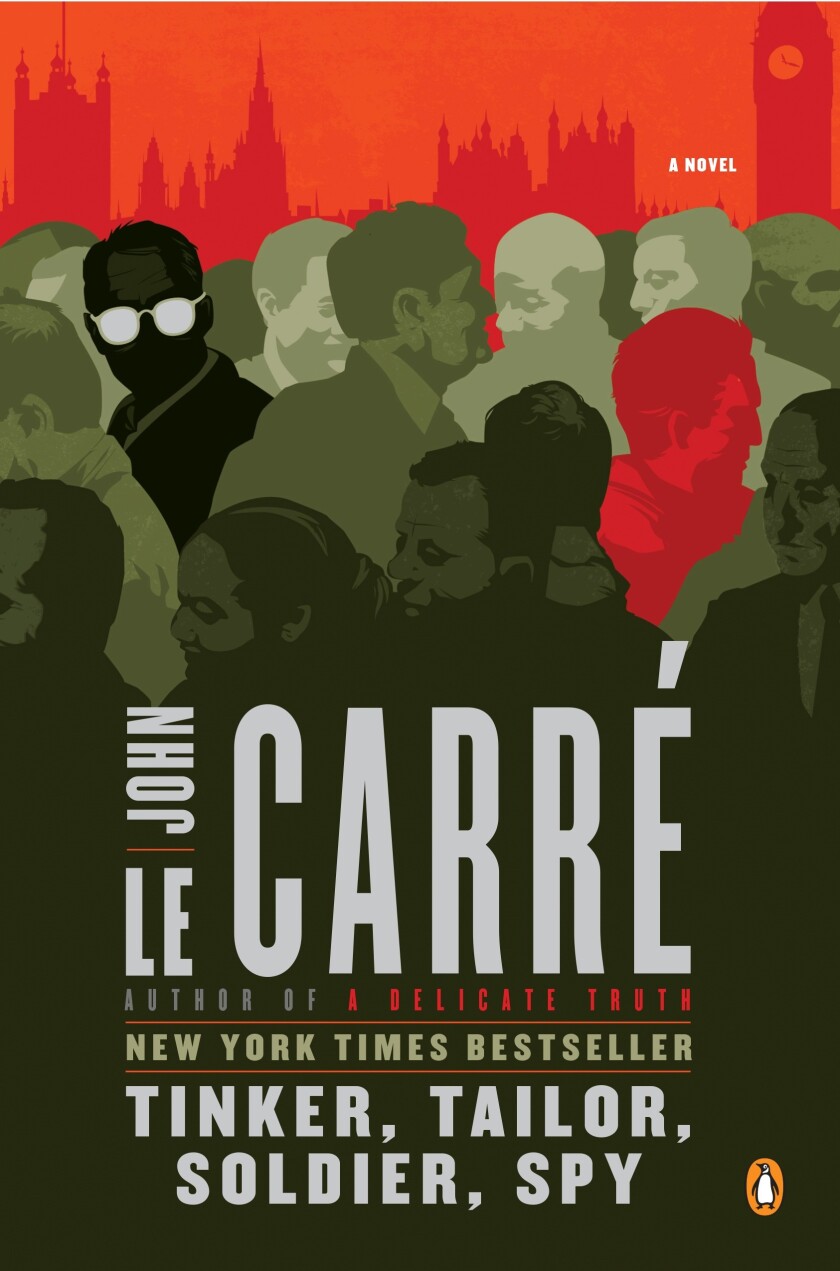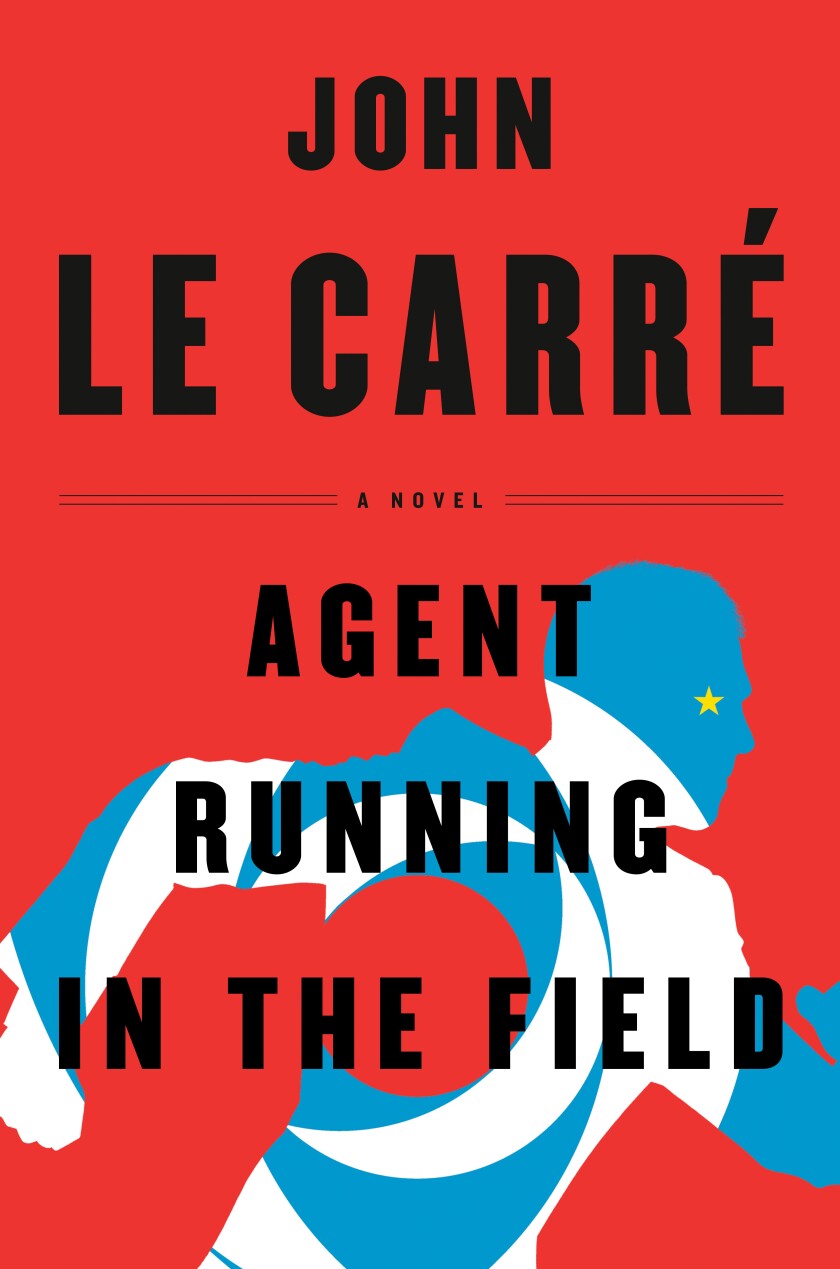 |
| John le Carré |
10 ways of getting to know John le Carré
By BETHANNE PATRICKDEC. 14, 2020
John le Carré, the acknowledged sage of espionage fiction, had the literary equivalent of perfect pitch. Not only was he adept at mimicry, especially of the English upper class; he knew why and how to use it to decimate hypocrisy.
Le Carré died Dec. 12, and it’s safe to say the world will never see his like again, because his powers arose from unique, irreplaceable circumstances. Born David Cornwell in 1931, he was the son of the kind of hypocritical con man Le Carré grew up to loathe. Ronnie Cornwell became the model for Magnus Pym’s father, Rick Pym, in “A Perfect Spy.”
Postwar events gave him the rest of his experience and material, as well as the stage on which to display his gifts. He worked for 12 years for the British secret services, MI5 and MI6 — until Kim Philby’s betrayal gave his name up (among many others) to the KGB. That collateral damage was ultimately to our benefit; having already published two novels under his pseudonym, when Cornwell left MI6 in 1964 he turned to writing full time.
Le Carré leaves behind 25 novels, as well as one underrated memoir-in-essays. Herewith, a Le Carré reading list for every desire.
Read “Tinker, Tailor, Soldier, Spy,” which may be the best portrait of Western bureaucracy and its failings ever written. On one level the story of the capture of Kim Philby, England’s treacherous mole, the novel quietly shows how the institutions of a declining world power can betray its stated principles — and how one man (George Smiley, of course) can patiently drill down to uncover truths, even unpalatable ones.

Read a series
Delve into the three novels that constitute the “quest for Karla”: “Tinker, Tailor,” “The Honourable Schoolboy” and “Smiley’s People.” One of Le Carré’s strongest attributes was the gimlet eye he cast on friend and foe alike. As Smiley and his colleagues chase a Soviet spymaster codenamed Karla, they must also battle governmental strictures that threaten to shut their own agency down for good.
Witness the perfect adaptation
Pick up “The Night Manager” and then watch the suspenseful and gorgeous television adaptation starring Tom Hiddleston. One of Le Carré’s best, the global drug cartel thriller moves seamlessly from a Zurich hotel back in time to a Cairo hotel and ahead again in the Bahamas. With the Cold War on the wane, the author’s pivot to a different world (which he would continue to explore in 11 stand-alone novels) is impressively assured. So is the 2016 TV version, written by David Farr and directed by Susanne Bier, with illustrious cast members like Hugh Laurie and Olivia Colman.

Get to know Smiley
Ten of Le Carré’s books feature a spy who was “short, fat, and of a quiet disposition.” All are worth a read, but the three best are “The Spy Who Came in From the Cold,” the aforementioned “Tinker, Tailor” and perhaps the last Smiley novel, “A Legacy of Spies.” Reading of all these machinations too quickly may incur whiplash, but in each of them you can see Le Carré’s formidable intelligence at work, with Smiley the Sphinx-like moral center.Get to know Le Carré
“A Perfect Spy” may or may not be Le Carré’s finest novel, but it is definitely his most personal, untangling the mess of his relationship with his own father and underscoring his great theme: betrayal and its many forms. After his mother fled the household when David Cornwell was 5, he watched his small-time crook father dissemble at every turn (even paying school fees in contraband gin). Here, as the bonds between Rick Pym and his son Magnus dissolve, so too does Magnus’ once-promising intelligence career; he becomes a double agent.
Get to know his true politics
Le Carré’s final novel, “Agent Running in the Field,” is a whirlwind of killer badminton matches, old-school espionage and 21st-century strategy. Most important, it manifests the author’s true Englishness — an Englishness that Le Carré, a vocal critic of Brexit, defines as cosmopolitan and European. He was 87 when the book came out, and yet his writing retained a pace and wit most 50-year-old novelists would kill to achieve.

LOL
“A Small Town in Germany” (1968) has occasionally been derided as anti-Teutonic. Read it again, though, and you’ll see that despite its Bonn setting and Nazi resurgence plot, the author spends most of his time poking fun at the ineffectuality of British agencies amid the seemingly endless Cold War. The point — and the author does have one in his first non-Smiley novel — is that as the British continued tilting at windmills, a New Right sprang up on turf they should have been protecting.
Get beyond Europe
Justin Quayle, protagonist of 2001’s “The Constant Gardener,” lives in Nairobi, Kenya. After his wife Tessa is killed on a mission with a doctor friend, he digs deeper — and discovers she was on to a Big Pharma scandal. In order to uncover the truth about Tessa’s death, Justin has to travel around the world, throwing off his identity as the quiet, decent man of the book’s title.

See a strong female lead
Charlie (Charmian), of Le Carré’s “The Little Drummer Girl,” follows the author’s rule that you become a spy because of something in your past. Once a radical leftist, Charlie is ripe for plucking by an organization that wants to infiltrate the Mossad. Martin Kurtz, Israeli spymaster, recruits Charlie as a double agent. When Charlie sees what is happening at Palestinian refugee camps, her loyalties are torn, making the natural course of events too much for her to bear. A great example of Le Carré’s distrust of any and all institutions claiming a monopoly on truth.
Read something completely different
“The Pigeon Tunnel” rips a veil or two away from the author’s carefully constructed persona. For the first time, he writes at length about his feckless mother, Olive (a.k.a. “Wiggly”), his “negligible contribution” to the secret services and about his battles with his long-divided self. Always dissembling, ever inventing, young David Cornwell found the art of disappearing into John le Carré comforting and comfortable. Reading these loosely tied together pieces might convince you he’s finding his way back to his younger self — but appearances, Smiley’s creator would remind us, can be deceiving.
Salman Rushdie / John le Carré / Reconciliación
John Le Carré / Philip Seymour Hoffman
John le Carré y Graham Greene / Benditas novelas de espías, de secretos y mentiras
Autores británicos que devorar
John le Carré / La gente de Smiley
John le Carré / La lección de Smiley
John le Carré / Cambios de lugar y protagonista
‘La chica del tambor’, de John Le Carré / El espionaje en los años setenta
Volar en círculos / John le Carré revela sus secretos
Volar en círculos / ¿Por qué John le Carré se convirtió en espía?
Espías como nosotros / John le Carré y Ben Macintyre
John le Carré recupera a su espía George Smiley en su nueva novela
John le Carré / La lección del maestro
John Le Carré / “El Brexit es la mayor idiotez perpetrada por el Reino Unido”
The Nigh Manager / Hugh Laurie, armas y champán
John le Carré / El Dickens de la Guerra Fría
John le Carré, maestro de la novela de espías, muere a los 89 años
DRAGON
John Le Carré on Philip Seymour Hoffman / Staring at the Flame
From Ali to Zadie / The best books of autumn 2016
The Pigeon Tunnel review / John le Carré comes in from the cold
William Boyd / Why John le Carré is more than a spy novelist
John le Carré's Measured Fury
A Legacy of Spies by John le Carré review / Smiley returns in a breathtaking thriller
Agent Running in the Field by John le Carré review / Thriller laced with Brexit fury
Elizabeth Debicki / The Night Manager
The top 10 classic spy novels
John le Carré remembered by writers and friends / 'He always had a naughty twinkle in the eye'
Posters and Covers / The Night Manager
10 ways of getting to know John le Carré



No comments:
Post a Comment